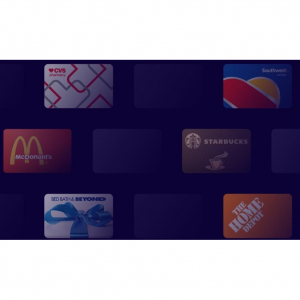
OpenVPN UDP vs. TCP vs. IKEv2 vs. WireGuard: Which Protocol is Right for You?
1, What is a VPN?
The term “VPN” stands for Virtual Private Network.
As the name suggests, VPNs are a secure way of accessing the internet and keeping your connection private.
VPNs establish a virtual point-to-point connection between your device and the internet, sending your data through an encrypted tunnel.
A VPN funnels your internet connection through an encrypted tunnel, making your activity private and your access to websites unrestricted.
2, There are two basic types of VPNs.
A remote-access VPN allows users to connect to another network, be it the internet or their company’s internal system, through a private encryption tunnel.
The other type, a site-to-site VPN, is also called a router-to-router VPN. This type of VPN is usually used in a corporate environment, especially when the company has its headquarters in several different locations. The site-to-site VPN creates a closed, internal network where the various locations can all connect with each other. This is known as an intranet.
3, There are several VPN protocols, or methods of security.
To actually create the tunnel, a tunneling protocol is used over existing networks. Different VPNs will use different tunneling protocols, such as OpenVPN or L2TP/IPSec.
VPN protocols are important. They provide safety and speed to your online communications. Whether your VPN is optimized for speed or security depends on the VPN protocol that you are currently using. These operate as tunnels through which your online traffic can pass through. Some tunnels are secure. Others offer amazing streaming speeds.
There are many types of protocols available, each having different strengths and capabilities. Some protocols are mobile device friendly. Others can be installed on your Wi-Fi router as well. Some offer better internet protocol security. Choosing a VPN protocol is important if you want to enjoy the best browsing experience.
The oldest is the PPTP point-to-point tunneling protocol, which is still in use today, but is widely regarded as one of the most insecure protocols. Others are IKEv2, L2TP/IPSec, SSL, TLS, SSH, WireGuard and OpenVPN.
4, The most popular VPN protocols are IKEv2, WireGuard and OpenVPN.
A VPN, among others, encrypts your data traffic before it’s sent to the VPN’s server(s). The system which is responsible for this encryption is usually referred to as an encryption protocol or VPN protocol.
Most modern VPN providers offer users several encryption protocols to choose from. It’s very important you choose your encryption protocol wisely. After all, every protocol comes with its own advantages and disadvantages. The most popular VPN protocols are the following 4:
OpenVPN with a UDP port
OpenVPN with a TCP port
IKEv2
Wireguard
Needless to say, to choose the best VPN protocol for you, it’s important to know the difference between the different protocols.
5, OpenVPN - Open-Source Protocol
With fast performance and top-grade encryption, OpenVPN is the protocol of choice. This open-source solution is configurable and runs on any port. As a result, you can get past most ISP/network restrictions and firewalls.
OpenVPN is a very popular and highly secure protocol used by many VPN providers. It can run on TCP or UDP internet protocol. Many VPNs, including NordVPN, allow you to choose between the two.
5.1, OpenVPN TCP
Better Reliability – TCP VPN service offers more stable connections as the protocol guarantees delivery of packets.
Bypass Firewalls – TCP VPN tunnels are rarely blocked since they run on common ports (80, 443). Usually TCP VPN tunnels can bypass even the most strict corporate firewalls.
Slower Speed – TCP features higher encryption methods that tend to slow transfer rates a little. For higher transfer speeds with OpenVPN use UDP.
5.2, OpenVPN UDP
Faster Speed – UDP VPN service offers significantly greater speeds than TCP. For this reason it is the preferred protocol when streaming HD videos or downloading torrents/p2p .
Preferred – UDP VPN tunnels are the preferred OpenVPN connection method if your network supports it.
Lower Reliability – On rare occasions UDP can be less reliable that TCP VPN connections as UDP does not guarantee the delivery of packets.
So what is the verdict? Both TCP and UDP OpenVPN connections will offer excellent security and privacy when using your VPN service. The choice between the two really depends on your own speed requirements and whether your connecting from your work or home network.
6, IKEv2 - Internet Key Exchange
IKEv2 stands for Internet Key Exchange Version 2. This VPN protocol is also referred to as IKEv2/IPsec, but as IKEv2 is never implemented without the IPsec encryption layer, it is generally shortened to just IKEv2. It is considered more lightweight and stable than OpenVPN while retaining some customizability. But it is only available over UDP, which is blocked by some firewalls.
IKEv2 is one of the newest protocols and has significant strengths, particularly its speed. It’s well-suited for mobile devices across all platforms. This protocol is very good at re-establishing the link after temporary connection loss and excels at switching connections across network types (from WiFi to cellular, for example).
7, Wireguard
Wireguard is the newest and fastest tunnelling protocol the entire VPN industry is talking about. It uses state-of-the-art cryptography that outshines the current leaders – OpenVPN and IPSec/IKEv2.
It is allegedly lighter and faster. Furthermore, it is open source, which means a reduced likelihood of security vulnerabilities. However, the protocol is still under development and lags behind in terms of cross-platform compatibility. However, it’s still considered experimental, so VPN providers need to look for new solutions (like NordLynx by NordVPN) to overcome Wireguard’s vulnerabilities.
**Tips: NordVPN 2 Year Deal: 70% Off For Only $3.54 Per Month, With Total Of $85. (Extrabux Exclusive!)
8, SoftEther
SoftEther is fairly new in comparison to other VPN protocols (excluding Wireguard). It’s quickly gained popularity because it’s very secure, stable, and fast. The protocol works with most operating systems (including Solaris and FreeBSD) and even has functionalities that OpenVPN doesn’t offer, like GUI Management and RPC over HTTPS, to name a few.
9, Which VPN Protocol Should You Use?
Selecting the best VPN protocols for your needs can indeed be a headache, but also necessary. There are two different kinds of VPN protocols. One is good for security. The other offers better streaming speeds. None can provide the best of both worlds, though.
Any VPN protocol that offers good security will be weaker when it comes to browsing speeds. To understand how this happens, imagine the VPN protocol as a tunnel. When we add more security features, like encryption, it gets narrower. Every packet of data is encrypted first, before it is sent on to the World Wide Web.
Speed-friendly VPN protocols, do not offer security features. These tunnels are wider and your data packets route in an easy manner. Hence, you receive great streaming speeds.
The following chart provides a thorough comparison of different VPN protocols:
Protocol | Speed | Encryption & Secure Browsing | Stability | Media Streaming | P2P File Sharing | Compatible with |
| IKEv2/IPSec | Fast | Good | Good | Good | Most OS and devices | |
| OpenVPN TCP | Medium | Good | Medium | Good | Most OS and devices | |
| OpenVPN UDP | Fast | Medium | Good | Good | Most OS and devices | |
| WireGuard | Fast | Good | Medium | Medium | Android, Linux, iOS, and Mac | |
| SoftEther | Fast | Good | Medium | Medium | Most OS and devices |
10, Which Is the Fatest VPN Protocol?
If you want to stream at high-speeds, PPTP is the fastest VPN protocol because of its weak encryption. L2TP and IKEv2 are also fast, while OpenVPN and SSTP are slower than other VPN protocols.
If you want speed and security, choose SoftEther or IKEv2.
11, Which Is the Most Secure VPN Protocol?
If the utmost in security is what you’re looking for, go with OpenVPN. SoftEther would be a good choice, too.
IKEv2 and L2TP are more secure because they encapsulate your data twice.
OpenVPN offers the highest level of encryption and uses digital certificates for authentication.
12, Best VPN Protocol for P2P File Sharing
When it comes downloading, use a protocol that offers good security and speed.
Both L2TP and IKEv2 use 256-bit encryption through IPSec. However, L2TP lags behind when it comes to speeds while IKEv2 is not supported on old platforms. Though not as fast as PPTP or IKEv2, OpenVPN still provides speeds and top-notch security. The 256-bit encryption makes it the best VPN protocol for P2P file sharing.
13, Which VPN protocol is best for torrenting?
If you’re interested in using a VPN protocol for torrenting, which is a file-sharing protocol based on peer-to-peer technology, you’ll need one that’s fast, stable, and secure. For all of these features, go with SoftEther.

Extrabux is an international cashback shopping site, offering up to 30% cashback from 10,000+ Stores!
Squarespace, SkinStore, MATCHESFASHION, The Wall Street Journal, NordVPN, Visible, Armani Exchange, Sam's Club, PUMA, AliExpress, Card Cash, NET-A-PORTER, Udacity, Udemy, Selfridges, LOOKFANTASTIC, Vimeo, Coach Outlet, lululemon, PrettyLittleThing, Booking.com, Ripley's Aquarium, iHerb, Groupon, etc.
Join to get $20 welcome bonus now! (How does Welcome Bonus work?)
Recommendation
-

10 Best & Stylish Winter Coats for Women on NET-A-PORTER in 2024
-

Top & Best 12 Sneaker Apps/Websites for Raffles, Releases & Restocks in 2024
-

7 Best Gift Card Exchange Sites - Buy, Sell and Trade Discount Gift Card Safely and Instanly!
-

Top 9 Professional Skincare Brands for Licensed Estheticians 2024
-

13 Best Luxury Online Shopping Sites with Highest Cashback in 2024 (Coupon Code+Sale+14% Cashback)
Up to 14% Cashback!










